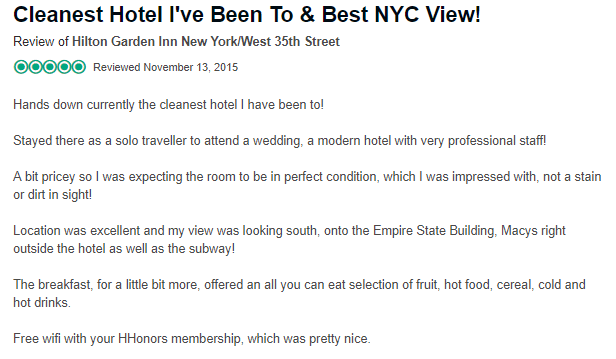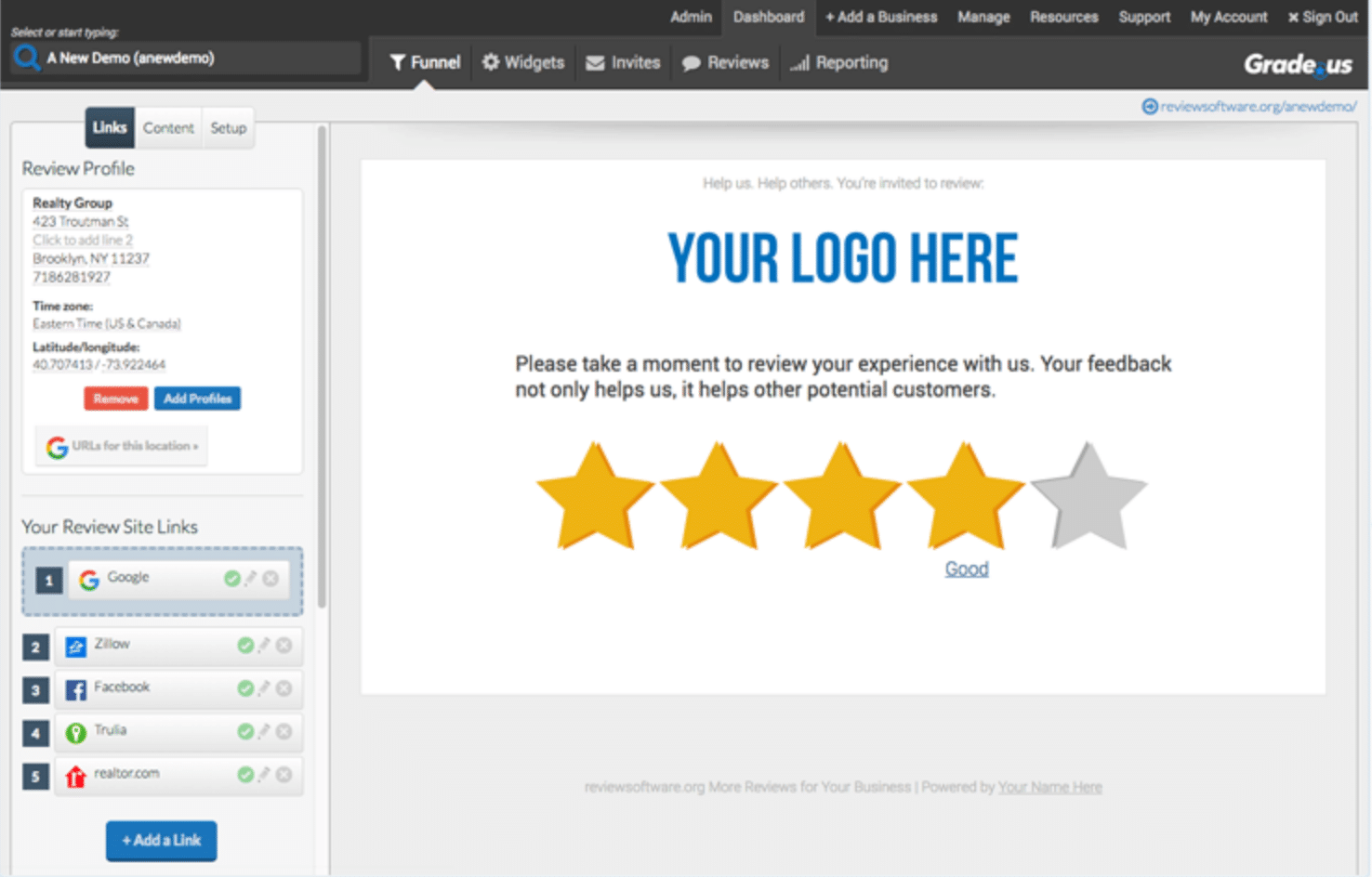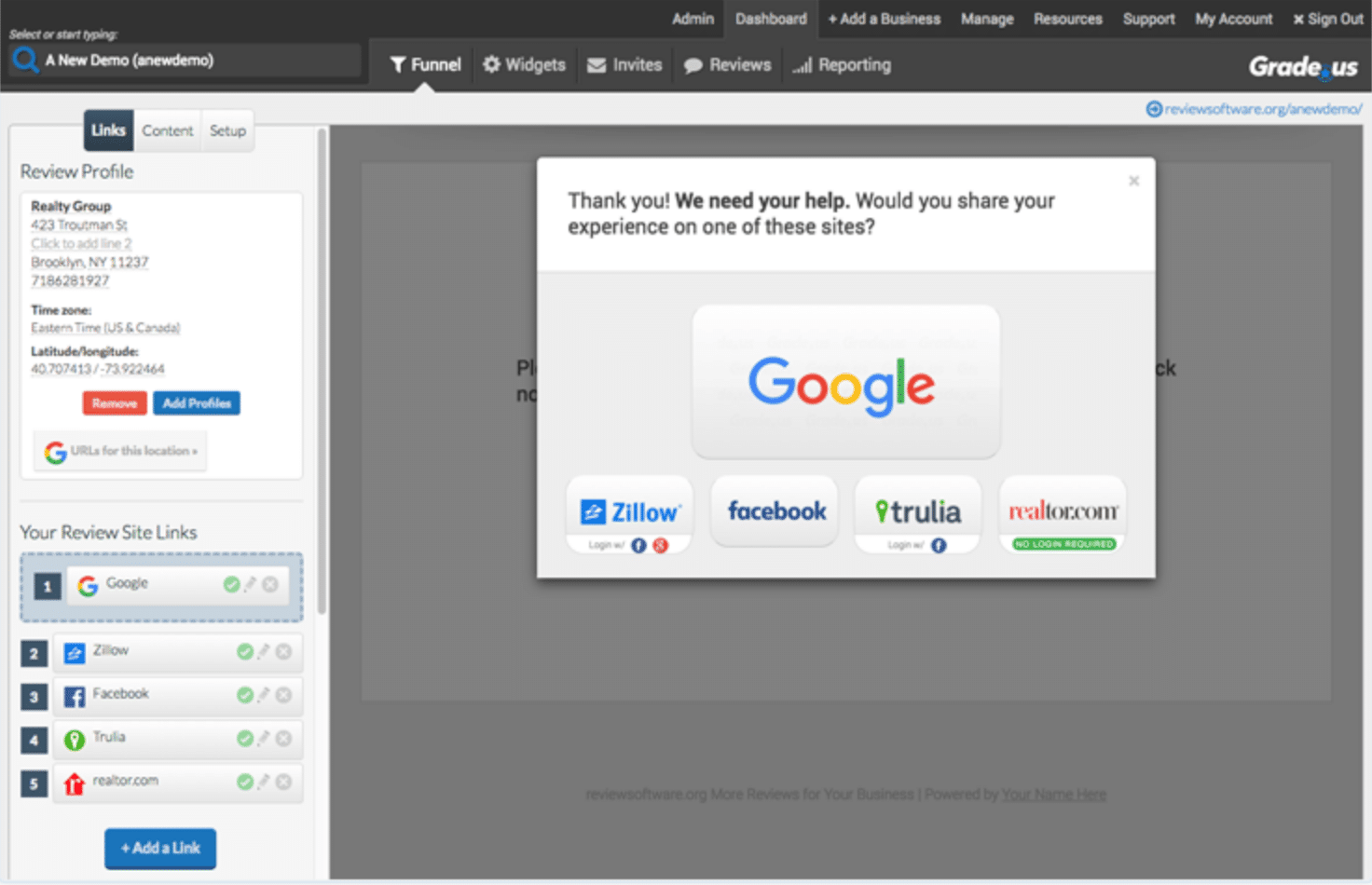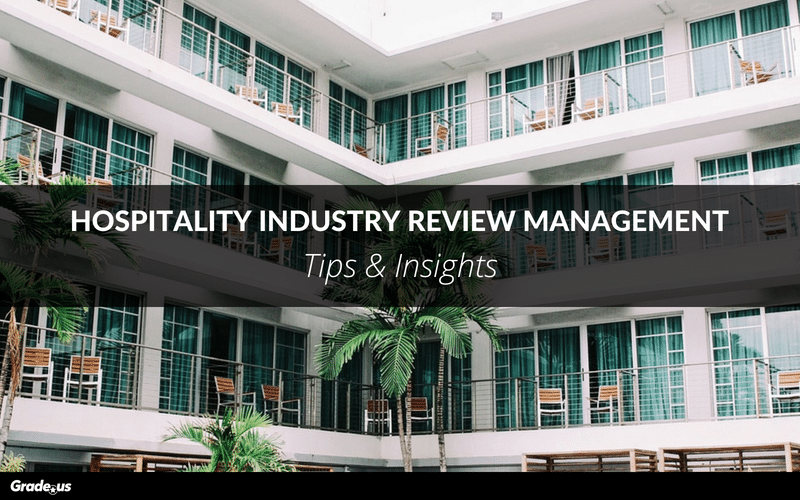The link between reviews and revenue exists in every business, but it's more direct, and more obvious, in the hospitality industry. This makes generating and managing reviews far more important for the owners of hotels, resorts, and glamping locations everywhere.
In fact, the review craze began with the hospitality industry. Hotels and restaurants were the prime targets of the early Yelp days. They've lived or died by their reviews for far longer than most other industries.
Where a law office might win with 50 reviews a hotel might need thousands of positive interactions to compete.
It's an essential form of digital marketing for every part of the hospitality industry.
Consider these statistics:
- Across all industries, 85% of customers say they consult reviews before making a decision. But for the hospitality industry, that number shoots up to 93%.
- According to a Cornell University study, a hotel which increases its review scores by one point on a 5-point scale can increase the price of a room by 11.2% while maintaining the same level of occupancy and market share.
- The same study indicates a 1% increase in reputation leads to an occupancy increase of 0.54%.
In a world where stars equal dollars, how can hotels best position themselves to succeed, without feeling like they have to give up the farm to their guests for fear of receiving a bad rating?
Where the Hospitality Industry Should Focus on Receiving Reviews
For the hospitality industry, the "Big 3" are Google, TripAdvisor, and Facebook. TripAdvisor is especially important, perhaps even more important than Google.
Google gets you the Maps search results, but TripAdvisor is the site the majority of people go to before booking any room.
In fact, data indicates Google searches for hotels have taken a massive plunge, because so many people go to TripAdvisor first.
Of course, there are a myriad of other sites worth focusing on, such as Booking.com.
Fodors.com is known for its thick, thorough travel guide books, and their hotel search and review site gets plenty of attention from those who know and trust the brand.
Specialty sites matter too. If you're a Bed and Breakfast, then BedandBreakfast.com is a good place to be.
If you're a dog-friendly establishment, you definitely want to funnel some reviews over to BringFido.
Know your guest's review "hot buttons"
Many industries have to work at getting people to leave reviews. The hospitality industry has the opposite problem. It's hard to stop guests from doing just that!
However, guest expectations are also extremely high, and even one bad experience can generate a harsh, negative review which will have long-term consequences.
Some complaints, of course, are downright ridiculous, and all you can really do is respond well and laugh them off.

Holy crap, the famous French Quarter bar was too busy. How dare they?

I say, how could they possibly let the rabble in to get drunk in a nightclub?
Yet the themes in most reviews, both good and bad, are almost always the same.
Comments fall into one of five categories. Knowing these categories, and working to ensure guests are having an outstanding experience in all five of them, is the key to achieving review success.
Category #1: Cleanliness
Customers care about cleanliness more than they care about any other attribute of the hotels they stay in. Fail to get this right and you can all but guarantee you'll receive a bad review.
For one thing, guests like the illusion they're the first and last people to ever stay in a room. They don't want to be reminded that a slew of stranger's heads have touched the pillows they're sleeping on. Impeccable housekeeping is the only way to maintain this impression.

Here's a review you never, ever want to see.

Those who care about clean really love to see clean.
Category #2: Maintenance
Maintenance issues can make a big impact on how guests view your hotel. Even if the non-working feature is as simple and as small as a coffee pot! The AC and thermostat are an even bigger deal.
Of course, things do break. That's just a way of life. The speed at which these problems are fixed, however, will make a big difference. Guests want to feel they're staying in a property the owners have pride in. They want a cozy, hassle-free experience. Making sure everything works helps them get that.

There are some things which really need to be checked before a room gets rented.

Here's a room full of amenities that obviously worked well.
Category #3: Service
Unfriendly, unresponsive staff members are a huge liability. Many of these problems can be overcome with training. It is also important to hire for attitude instead of for experience. Hotel systems and procedures can be taught, attitude can't.
Empowering service people to solve the problems customers bring to their attention is another big one. If all lower-tier employees are allowed to do is make a note and wait for management, customers will end up feeling ignored. If you're coming to this post as a marketer trying to help a hotel client succeed, keep in mind you can play a big role in doing just that by helping your clients identify and eliminate service problems.
See also: 9 Customer Service Hacks to Win Rave Reviews and Your Employee Gets Called out in a Review, Now What?

What happened here? Whatever it was, it turned what could have been a very positive experience very sour indeed.

Can you truly say your guests are being spoiled rotten by service? This hotel can.
Category #4: Amenities
Hotel guests expect access to every amenity they found on your website. Advertise a pool but keep it closed for half the year? Photos make your hotel look nicer than it is? Expect that issue to show up in your reviews.
Don't offer WiFi, or very good WiFi, or charge through the nose for WiFi?
There's a policy that's worth reconsidering. WiFi access failures are another huge complaint of hotel guests. Some amenities are simply expected in the modern era, whether you're advertising them or not.
Your competitors are certainly changing their policies in response to their reviews.

Worse than a lying Tinder date.

Beautiful amenities, delivered as promised.
Category #5: Communication
Another common guest complaint is being charged for items they expected to get for free. Making sure you're communicating your charging policies clearly and concisely on all your marketing collateral, in the hotel binders in every room, and anywhere else you can think of.

Both the parking policies and the pool policies should have been clearly stated on this establishment's website. Every staff member should have known the rules, and they should have been able to communicate them without contradicting one another, too.
There are no shortcuts.
It would be nice if there were some ultimate PR, advertising, or marketing trick you could use to get great reviews. There isn't. Professionals in every industry have to deliver top-notch results to get great reviews, but hotel guests can be particularly unforgiving.
If you think about it, it even makes sense.
Quite a few of your guests might well get the chance to travel just once a year. They might have saved every dime just for this one, single vacation experience in your establishment. It doesn't even matter if you're a "destination" hotel. Even a small town hotel gets people who are visiting family, attending festivals, or seeing sights nearby.
Disappointments will be felt more keenly. Travel is stressful, so inconveniences are all the more painful. You must deliver a great experience. Failing that, you must respond to criticisms appropriately, and find ways to save the customer when you can.
Respond to all reviews.
You can make a significant difference in the reviews you receive by responding to every one of them. The Harvard Business Review reports a 12% increase in reviews when management responds, as well as a star-rating increase of 0.12 stars.
It is best if the response occurs within 24 to 48 hours, and of course, your response must be effective.
When reviews are positive:
Stop and thank each person who took the time to leave your hotel a great review. Doing this will show you are a responsive and gracious host, one who understands the value of the review you are receiving and the way it may impact your bottom line.
Here's one great example.

Note how the hotel manager signed his full name in the review? We also know his title. As the General Manager of this hotel, he's definitely the right person to make the response.
When reviews are negative:
Don't just thank customers when you get a positive review. Graciously thank them for negative feedback as well. It's counterintuitive, but it sets a tone which will help you diffuse the situation.

Notice how the General Manager offered apologies in his response? Whether you feel the reviewer is in the right or not, it's important to show empathy.
However, you don't have to go any further than that. You can request the customer email you with the rest of his or her information so you can do what you can to make the situation right and save the customer's future business.
Don't get defensive, justify what happened, or accuse the reviewer of misrepresenting the situation. You don't want to get into a flame war with the reviewer. You want to be professional as you show the public you care about the customer's feedback.
Controlling the flow of reviews can control customer behavior, and your reputation
Responding correctly to a bad review can help you win back your customer. But there's a smarter way to go about doing this: winning back your customer before the review ever hits any site where it might be read.
For example, Grade.us allows you to send customers an email requesting feedback. If they're happy, they get funneled to one of the major review sites to share their experiences directly. If they're unhappy they're invited to communicate with you directly.

A happy customer rates the business 4 stars.

They are then prompted to leave a review on one of the business owner selected review sites.
Most customers follow the flow of the prompts. They get the satisfaction of knowing someone in management is hearing them out. You get the chance to respond in private.
Of course, to make it work you must respond, and you must make the situation right with the customer, whatever that takes. Otherwise he or she might become even angrier, and take to a review site to air out the grievance anyway.
Remember, in this industry it's far harder to stop customers from leaving reviews than it is to get them to do it. Commit to responding to these message within 24 hours, if not sooner.
You must also get this follow-up email to customers fast, before they make their own decision about what to do. It's best if you can get the email sent no less than one hour after checkout.
The customer is on his or her way home and isn't ready to leave a review yet, but the email will be ready and waiting when the time comes. Thus, you take control of the situation, and are no longer at the mercy of your guests.
The Hospitality Industry has been reviewed for a while, most know the drill
Owners of hospitality businesses have been in the review game for a while. For that reason, it's woven into the fabric of hospitality industry marketing.
You honestly cannot establish your business these days without an online review portfolio that highlights why tourists should be visiting yours or your clients place of business.
Take the time to establish your online review management and marketing strategy immediately, because you'll sink if you don't.
Tourists have the highest of expectations, sometimes unfairly. If you don't live up to them, it will be near impossible challenge to earn reputation redemption.
About the Author
Raney C. Hudson
Raney C. Hudson is an independent content consultant with a 10+ year track record in the digital marketing industry.










